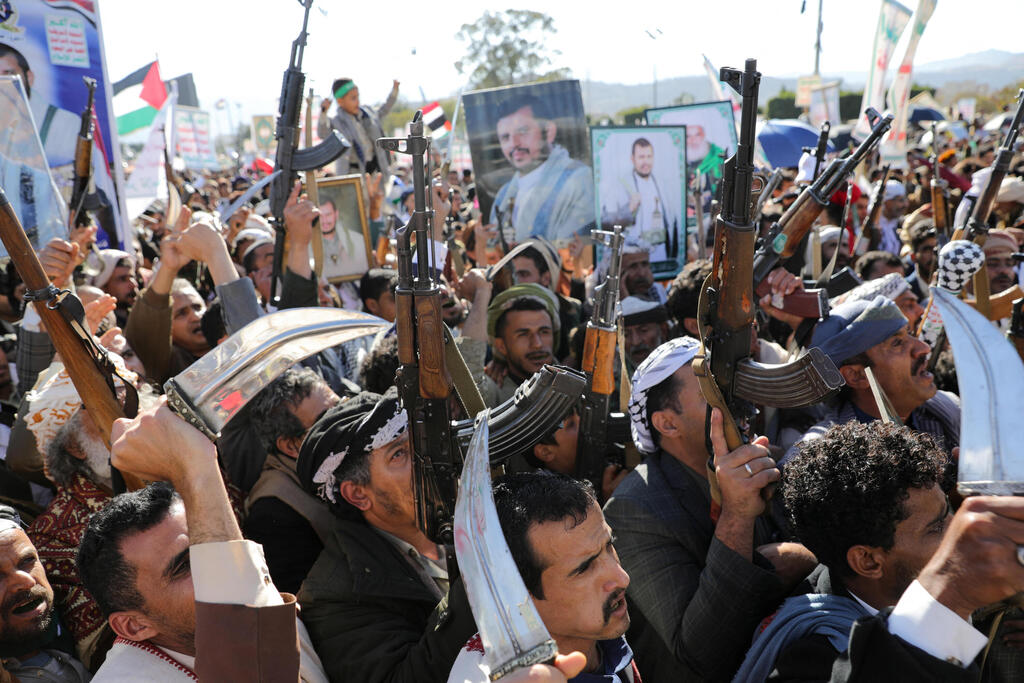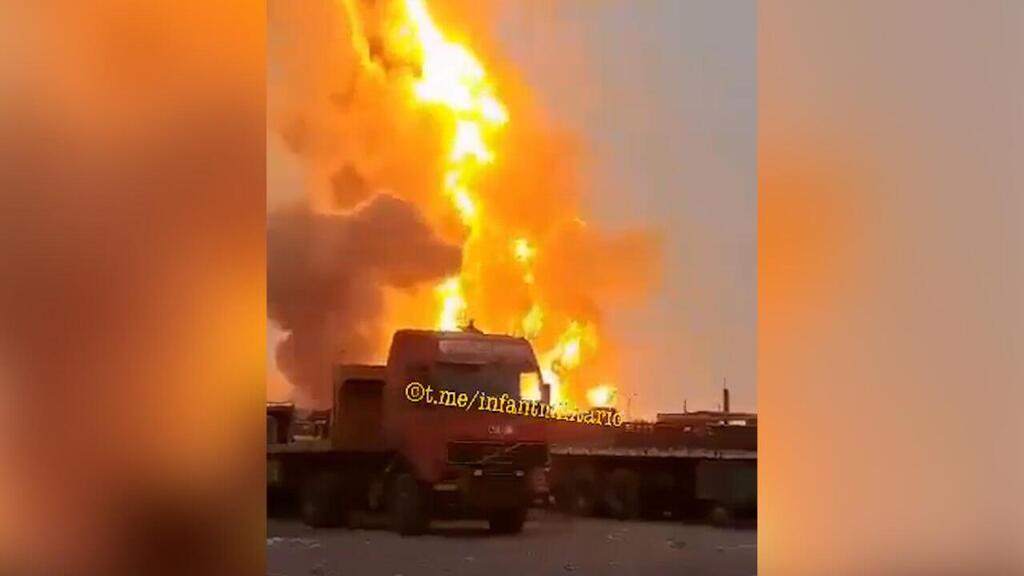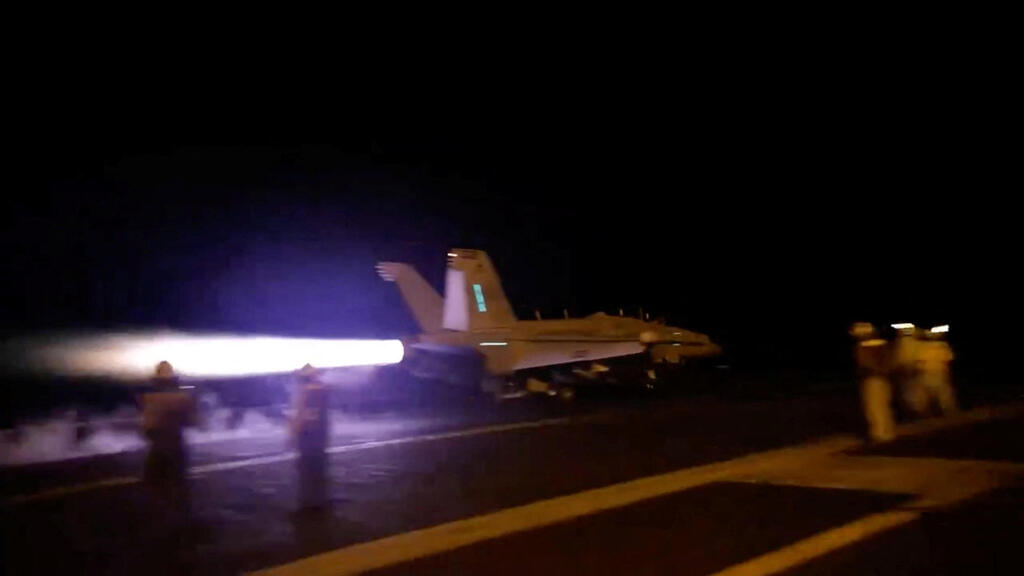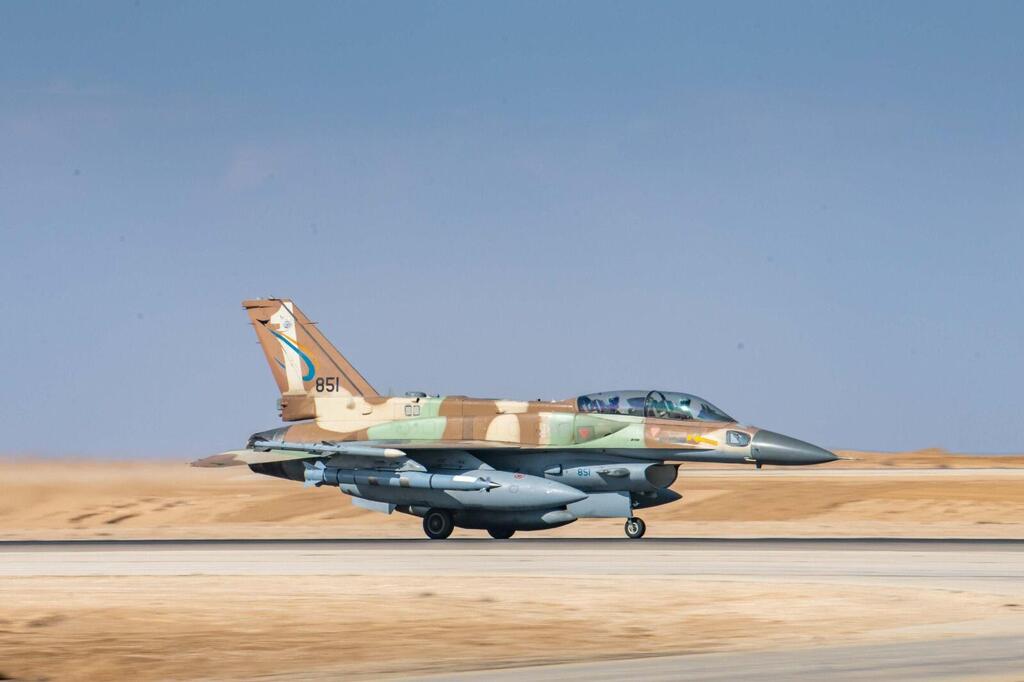Since the launch of the Swords of Iron War, we have witnessed the involvement of the distant arena in Yemen, from which the Houthis fire surface-to-surface missiles and launch drones at Israel. Beyond the ballistic and aerial threat, the Houthis are also challenging shipping routes in the Red Sea.
After Israel struck Hamas and Hezbollah, and in light of the developments in Syria that weaken Iran's ability to influence the region, the Houthis continue to harass the Israeli home front – in recent weeks with an increasing rate of surface-to-surface missile fire at Israel.
The Houthis and their actions against Israel
The Houthis are a Yemeni Shiite Muslim group that has been involved in a protracted conflict inside Yemen. Their involvement goes beyond local conflicts, and they integrate with the Iranian-led "axis of resistance" against the United States and Israel. As part of the war, the Houthis launched several missiles and drone attacks aimed at Israel.
For example, on October 19, 2023, they launched cruise missiles and drones at Israel, which were intercepted by an American warship in the Red Sea. Other attacks also included drones and ballistic missiles aimed at Israel, which indicated from the beginning of the campaign an ongoing challenge.
Israel's response
In the early stages of the campaign and in response to these threats, Israel focused mainly on intercepting incoming missiles and drones. For example, the Arrow system successfully intercepted a ballistic missile over the Red Sea near Eilat. Later, Israel presented the ability to launch air strikes against the Houthis' military infrastructure in Yemen, but so far it has refrained from launching a full-scale campaign, out of the need to concentrate its efforts against Hamas and Hezbollah.
The continued threat from the Houthis, along with the weakening of the Shiite axis, raises a number of directions of action that are required to neutralize this arena, so far it is evident that the efforts, both by Israel and by the United States and its partners, have not succeeded in neutralizing or deterring the Houthis – we are currently witnessing the intensification of the campaign against the Houthis in Yemen under the context of freedom of navigation and the removal of the threat from Israel.
U.S. responds to the Houthis
The U.S. has a significant role to play in thwarting Houthi attacks, especially those that threaten maritime security in the Red Sea. U.S. forces intercepted Houthi drones and missiles, carried out airstrikes on Houthi military installations, and increased maritime patrols in the area.
These actions are designed to protect international shipping lanes and support regional allies, including Israel. The U.S. has also coordinated with other countries, such as Britain and Saudi Arabia, to establish collective defense against Houthi aggression but so far this fighting has been mainly characterized by counter-fire, with no significant action that will fundamentally change the situation.
Effective solutions to reduce Houthi threats
Dealing with the Houthi threat in the Red Sea requires a multidimensional approach. First, improving maritime security through increased maritime patrols and international cooperation can help maintain commercial shipping. Second, diplomatic efforts to resolve the broader conflict in Yemen may reduce the Houthis' ability and motivation to carry out attacks. Third, targeted military operations may be needed to strike at the Houthis' missile and drone capabilities to reduce immediate threats.
In the ballistic dimension, dealing with the missile threat specifically involves strengthening the missile defense systems in Israel and allied countries. Advanced interception technologies, such as the Arrow and Iron Dome systems, have proven to be effective, but they must be constantly upgraded to deal with evolving threats. In addition, intelligence sharing between regional and international partners can improve early warning capabilities, and enable preventive measures against imminent attacks.
Ground option
It is not impossible, and perhaps even more intense, that significant ground action against the Houthi threat will be required if they do not cease their activities in the naval fleet and on the air route. This type of operation is complex due to the great distance from Israel, and the possible complications – one of the examples of such operations we have seen in the past, for example, in the U.S. fight against terrorism in Somalia in the early 1990s.
Evidently, the American failure affects the perception of using force even now. With an emphasis on the American reluctance to carry out ground operations against threats in distant arenas – a task that requires the use of significant force beyond the operation on the ground, including the need for rescue and general assistance – it is evident that so far efforts have been made to avoid an all-out campaign against the Houthis due to the possible consequences. In any case, in the eyes of many, this is a very secondary arena.
The "loitering" munitions
The term "loitering munition" refers to a type of weapon system that can remain in the air for an extended period of time, monitoring a target area before it attacks. These systems combine the capabilities of unmanned aerial vehicles (UAVs) and guided missiles, enabling real-time decision-making and precise hitting.
In the context of Israel's strategic considerations, loitering munitions can be effectively used in operations against the Houthis in Yemen. The Houthis' use of asymmetric warfare tactics, including the deployment of unmanned aerial vehicles (UAVs) and missile systems, poses a complex threat that requires advanced countermeasures. Loitering ammunition offers several benefits, including the ability to provide continuous surveillance, engage moving targets, and minimize collateral damage through precision hits.
The application of loitering munitions in the current war can improve Israel's operational flexibility and efficiency. By integrating these systems into their broader intelligence and surveillance network, Israeli forces will be able to disrupt Houthi operations and reduce their capabilities at minimal risk. This approach is consistent with modern warfare's emphasis on technological superiority and precision strikes, which is essential for dealing with emerging threats in the region.
Targeted raids on the ground
A targeted raid is a military operation that focuses on a specific target with precision and minimal collateral damage. This strategy often involves using intelligence to locate and neutralize high-value targets, such as key personnel, equipment, or infrastructure. Targeted raids are designed to achieve strategic targets quickly and efficiently, and are often used by special forces units due to their special training and ability to perform quick and covert operations.
In the context of Israel's struggle against the Houthis in Yemen, the use of targeted raids can serve a number of strategic purposes. First, these actions can disrupt the Houthis' command and control structures by eliminating or capturing key leaders. This will reduce the group's operational effectiveness and create a leadership vacuum, which could lead to internal undermining.
Second, targeted raids can be used to destroy specific assets that are essential to the Houthis' combat capabilities. This includes weapons caches, communication centers, and logistical supply lines. By focusing on these critical junctures, Israel could deteriorate the Houthis' ability to sustain protracted military confrontations, thereby weakening their overall position.
Third, targeted raids can gather valuable intelligence that can be used for future operations. This may include documents, electronic devices, or prisoners that can provide insights into the Houthis' plans, tactics, and external support networks. Intelligence obtained from targeted raids can improve the effectiveness of subsequent operations and contribute to a broader understanding of the adversary.
5 View gallery


Will MBS help Israel and US against the Houthis?
(Photo: AFP PHOTO / HO / SAUDI PRESS AGENCY SPA)
In operational terms, Israel's use of targeted raids against the Houthis will likely involve coordination with local and regional partners to secure access and minimize the risk of escalation. The success of such operations will depend on precise intelligence, careful planning, and the ability to carry out missions quickly and discreetly.
The continuity factor
Beyond the fact that this concept is a significant principle of warfare in defeating military threats, it has not been expressed so far when it comes to the Houthis. It is evident that the strategy adopted against the Houthi threat has been expressed in sporadic actions – so far this arena has not really experienced sustained military pressure.
The Houthi threat requires Israel to take a very diverse approach and employ a number of offensive capabilities, with an emphasis on international cooperation
In order to significantly neutralize this arena, continuous action is required over time, it must combine all of the capabilities mentioned above, mainly offensive, and at defined timings. The Houthis must feel a systematic attack on all of their capabilities over time and continuously, with an emphasis on a direct threat to their leaders. Here there is a great opportunity for a coalition campaign in which each country will bring its relative advantages in the battlefields.
Get the Ynetnews app on your smartphone: Google Play: https://bit.ly/4eJ37pE | Apple App Store: https://bit.ly/3ZL7iNv
In summary, the Houthi threat requires Israel to take a very diverse approach and employ a number of offensive capabilities, with an emphasis on international cooperation. The campaign against the Houthis is an opportunity for a local Middle Eastern coalition to present the capabilities of cooperation to eradicate terrorist militias such as the Houthis. Since this is a threat that does not concern Israel, it is desirable and correct for Israel to adopt the approach of cooperation with regional actors such as Egypt, Jordan, the United Arab Emirates, and Saudi Arabia – this is a test point for the seriousness of such a coalition, on which the Americans have high hopes in strategic contexts.






